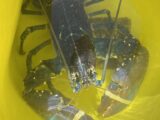Commercial divers and company director receive police cautions for fraud
September 13, 2023Exaggerated Credentials Lead to Sanctions for Offshore Divers and Diving Company Director
The Health and Safety Executive (HSE) has criticized two offshore commercial divers and the director of a diving company for fabricating their credentials. These false claims of diving experience could have endangered the lives of both the individuals involved and other divers during an offshore incident.
After conducting an investigation, the HSE has revoked the diving qualifications of the two divers from the Portsmouth area. Additionally, both divers and the director of the commercial diving company have received police cautions for fraud.
In December 2022, the HSE received information suggesting that the two divers had obtained their closed bell qualifications without the necessary prior diving experience. Concerns arose regarding the lack of experience, especially since both divers had worked for contractors in the North Sea.
In order to work as a saturation diver in the UK, a diver must possess an approved qualification. Currently, the only two dive schools worldwide that offer this qualification are INPP in Marseille, France, and the Commercial Dive Academy in Tasmania.
The HSE contacted both dive schools to obtain details of the dives submitted by the divers during their enrollment. Inspectors then followed up on this information with several UK diving contractors to verify the authenticity of the claimed diving experience. Fortunately, the contractors were able to provide accurate records of dive depths and times for the individuals in question, as they are legally required to retain such records for two years.
The director of the diving company, however, failed to provide any records despite having signed and stamped the diver’s logbook himself. To confirm the illegitimacy of the claimed diving, the HSE conducted an investigation at the location mentioned in the logbook with the assistance of the harbourmaster. It was determined that no diving had occurred on the dates recorded in the logbook. The diver had forged 10 dives at this location in order to falsely demonstrate that he had completed 20 dives over 15m deep. These forged entries had been fraudulently stamped and signed by the director.
As for the other diver, the HSE could only find records of around 28 dives, with only one of them being deeper than 15m. However, the diver had declared to the dive school that he had completed 106 dives, 26 of which were deeper than 15m.
The HSE collaborated closely with the Fraud Investigation Team of Hampshire Police. All three individuals admitted to making false entries in their logbooks and received police cautions for fraud by false representation under the Fraud Act 2006.
Phil Crombie, an HSE diving inspector, emphasized the importance of genuine diving experience for closed bell divers. He warned that fabricating such experience puts the lives of divers at risk and highlighted the need for offshore diving contractors to employ qualified individuals. He also stated that if any evidence suggests that divers have falsified their experience to enroll in a closed bell course, the HSE will thoroughly examine all available records. Making false entries in a logbook is a criminal offense, and the police cautions ensured that the relevant authorities swiftly revoked the divers’ qualifications. Crombie also expressed gratitude that no accidents or incidents occurred involving these individuals.
Hampshire Police PC Alam Mahmmued acknowledged the serious risk these individuals posed to themselves by undertaking dive work without the required experience. He emphasized that their actions constituted criminal offenses and stressed the commitment of the police and HSE to addressing fraud. Mahmmued expressed hope that this collaboration would deter future offenses, but warned that continued offending would result in severe consequences in the criminal courts.


